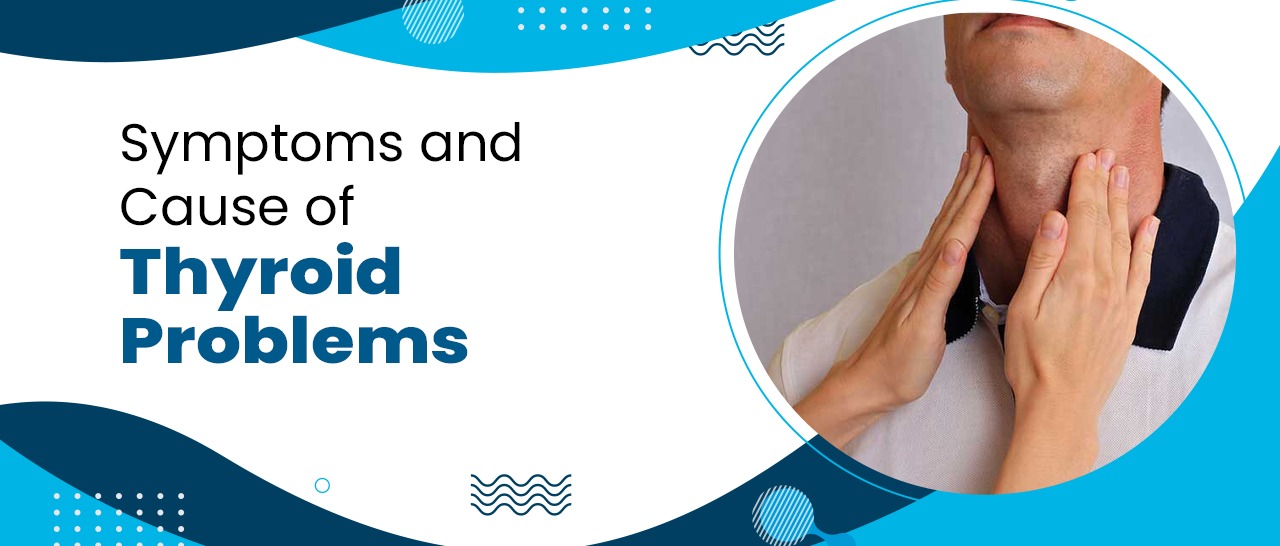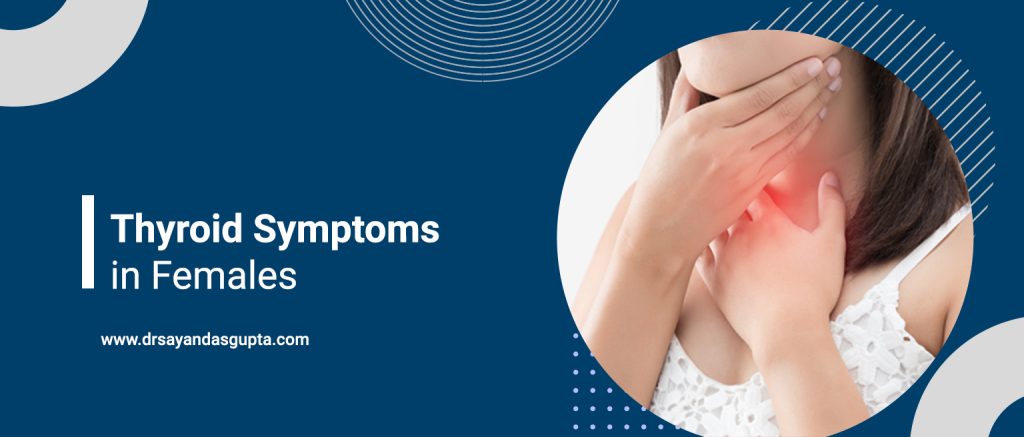Thyroid hormones regulate metabolism and are released and controlled by the thyroid gland in your body. During metabolism, the food you consume is converted into energy and your body’s systems depend on this energy to function effectively. Your metabolism may be thought of as a power source. It takes in raw energy and utilizes it to power a more extensive system.
There are a couple of particular hormones that the thyroid uses to regulate your metabolism: T4 (thyroxine, which includes four iodide atoms) and T3 (thyroxine, which has three iodide atoms) (triiodothyronine, contains three iodide atoms). The thyroid gland produces these two hormones, instructing the body’s cells on how much energy to expend. Your thyroid must make the correct quantity of hormones for your metabolism to function correctly. A depleted thyroid creates new hormones to replace those that have been lost.
Symptoms of Thyroid
Thyroid illness may manifest itself in several ways, each with its own set of signs and symptoms. Thyroid symptoms are sometimes mistaken for other medical diseases and life phases, which is unfortunate. It might be hard to tell whether your symptoms are caused by a thyroid problem or something else entirely.
When it comes to symptoms of thyroid illness, hyperthyroidism and hypothyroidism are two of the most common types of hypothyroidism (hypothyroidism). Hyperthyroidism (overactive thyroid) symptoms include:
- Anxiety, impatience, and anxiousness are present.
- Inability to fall asleep.
- Weight loss.
- Muscle tremors and a feeling of exhaustion.
- Menstrual irregularities or complete cessation of the menstrual cycle.
- Heat is causing me discomfort.
- Irritation or blurred vision.
Hypothyroidism (underactive thyroid) may cause a variety of symptoms, including:
- Feeling tired (fatigue).
- Gaining weight.
- Experiencing forgetfulness.
- Having frequent and heavy menstrual periods.
- Having dry and coarse hair.
- Having a hoarse voice.
- Experiencing an intolerance to cold temperatures.
Causes of Thyroid
The most prevalent thyroid disorders are hypothyroidism and hyperthyroidism. The thyroid gland’s function may be affected by a variety of diseases. The following conditions may bring on hypothyroidism:
- Thyroiditis: This is a disorder in which the thyroid gland becomes inflamed (swollen). Thyroid hormone production might be reduced if you have thyroiditis.
- Thyroiditis: Hashimoto’s When the immune system attacks and damages the thyroid, the result is Hashimoto’s thyroiditis, a relatively painless disorder.
- 5 to 9 percent of new mothers are diagnosed with postpartum thyroiditis following the delivery of a child. In most cases, it’s a momentary affliction.
- A deficit in iodine: The thyroid uses iodine to make hormones. Several million individuals throughout the globe suffer from an iodine shortage.
- Some people are born with a thyroid gland that doesn’t operate properly. One in every 4,000 babies is born with this condition. An untreated youngster may have both physical and mental health concerns in the future. Thyroid function is tested in all neonates admitted to the hospital for observation.
Several different conditions may cause hyperthyroidism.
- Graves’ disease: The thyroid gland as a whole may be hyperactive and release an excessive amount of hormone in this disorder. The term “distributed toxic goiter” refers to this issue (enlarged thyroid gland).
- Overactive thyroid nodules are one possible cause of hyperthyroidism. Toxic autonomously functioning thyroid nodules refer to a single nodule, whereas toxic multinodular goiter refers to several nodules.
- There are two extremes to thyroiditis symptoms: discomfort or no symptoms at all. During thyroiditis, hormones held in the thyroid are released into the body. For a few weeks or perhaps months, this may be the case.
- Excessive iodine: When you have too much iodine in your body, the thyroid produces more thyroid hormones than it requires. Some drugs (such as amiodarone, a heart medication) and cough syrups contain excessive amounts of iodine, leading to thyroid problems.






